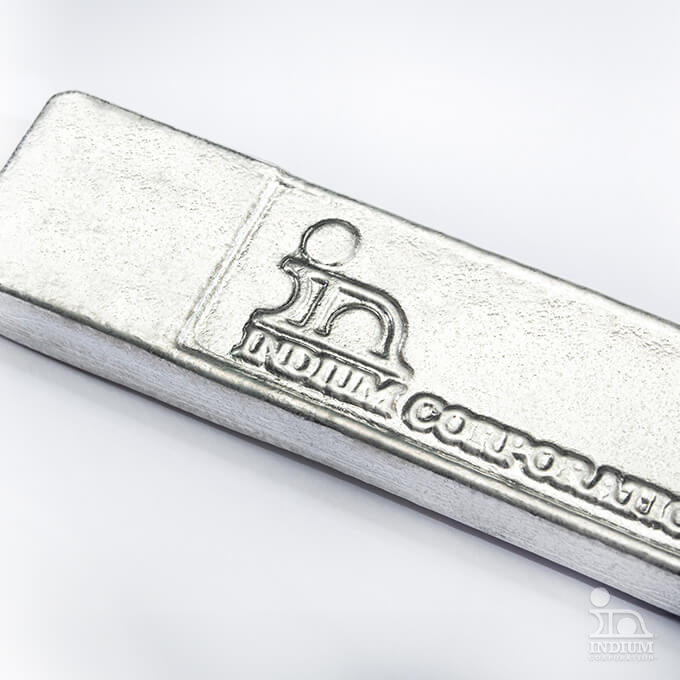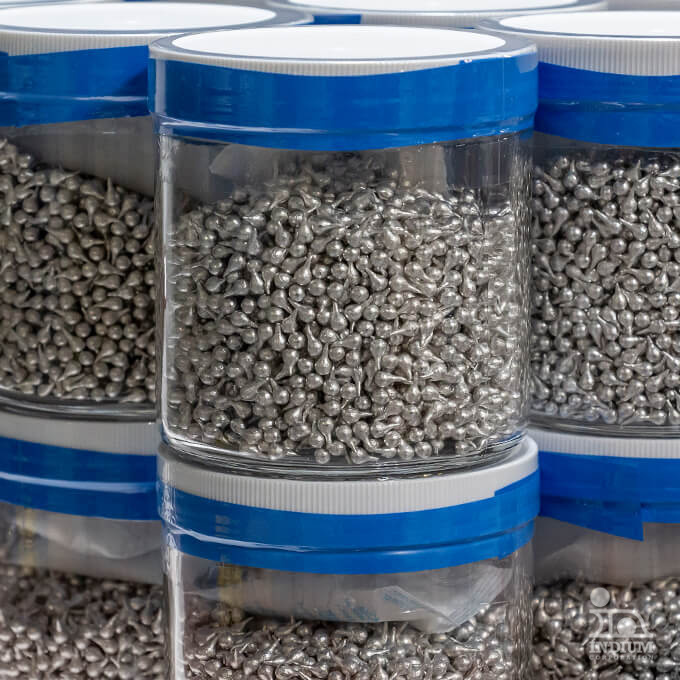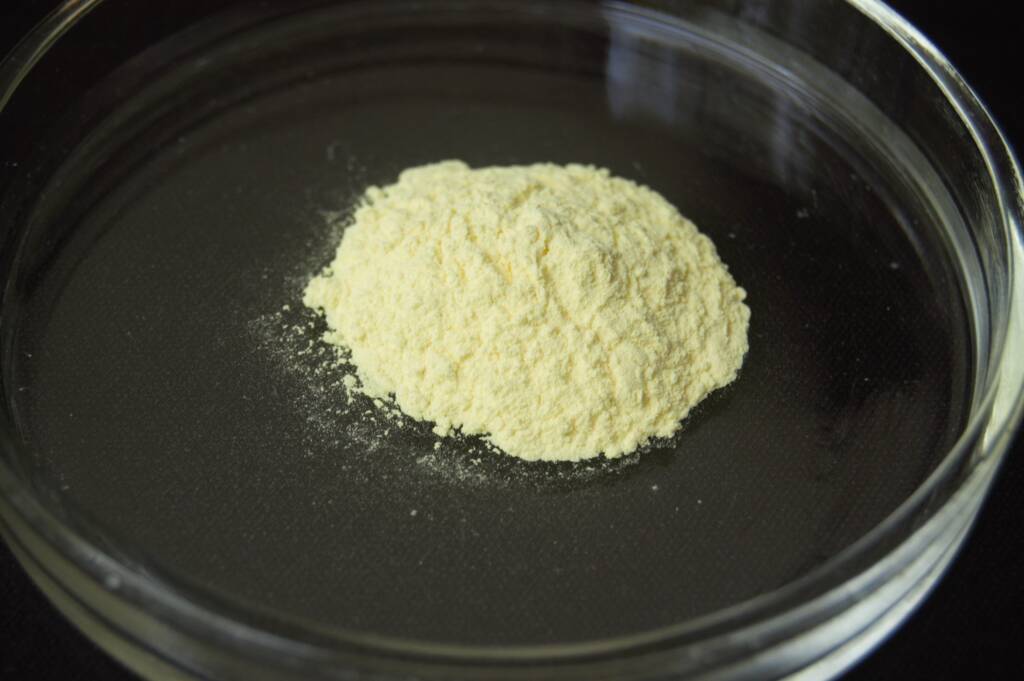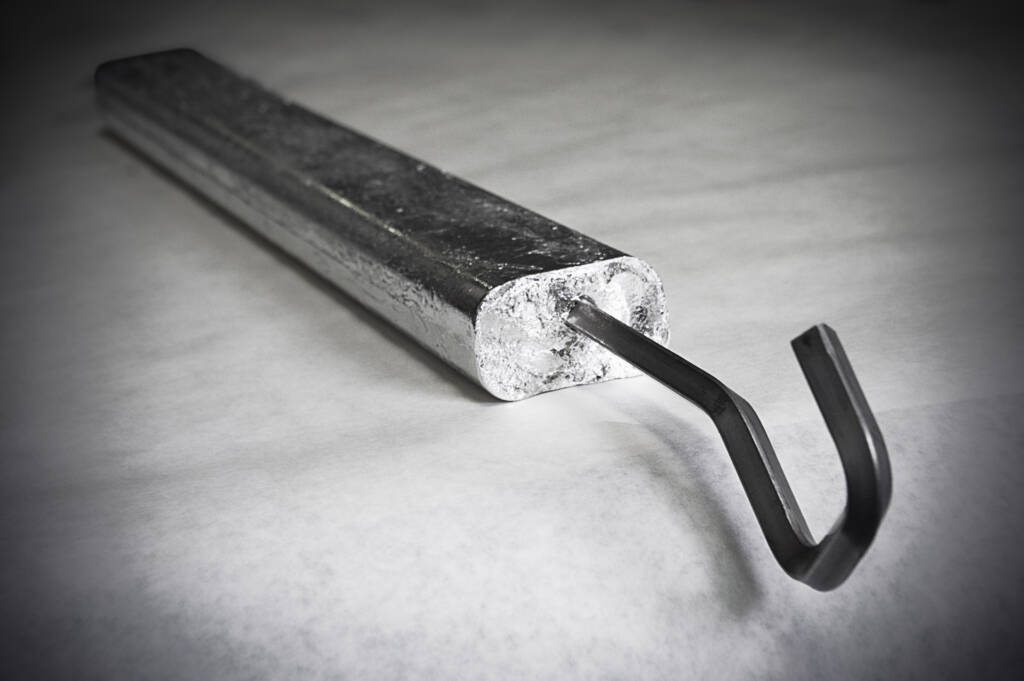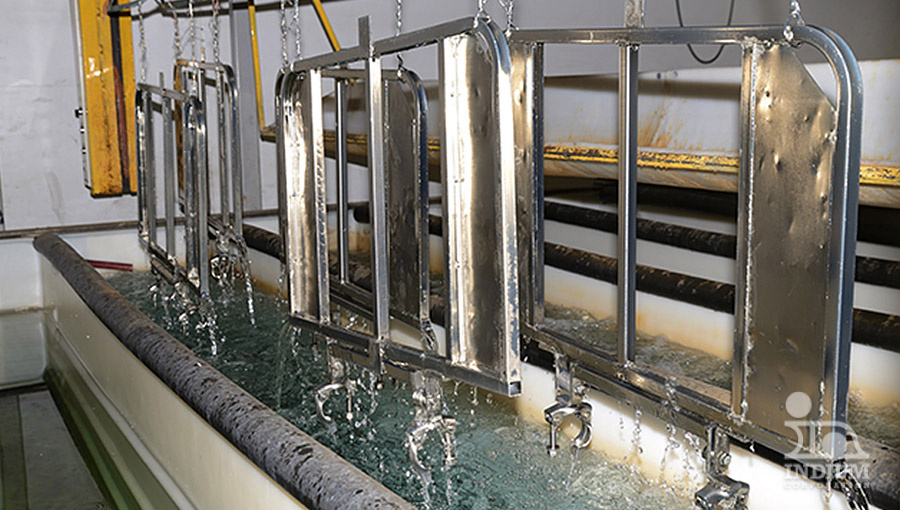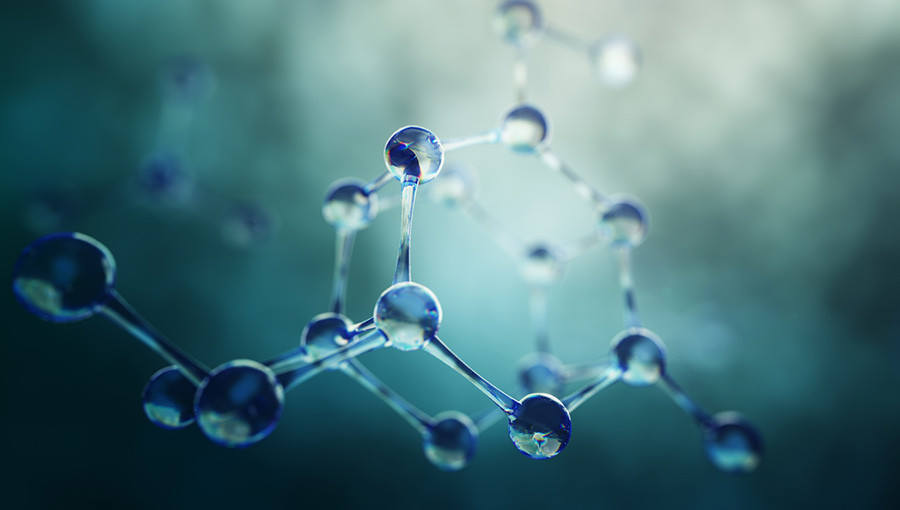Applications
Cathodic Protection
Metal parts submerged in seawater, such as a ship’s hull, are exposed to electrolytic conditions that lead to corrosion. If a more reactive metal is attached to the ship’s hull, this new metal acts as a cathode and is now being protected: the sacrificial anode corrodes instead of the hull. Indium metal enhances the activation of aluminum alloy sacrificial anodes. This anti-corrosion application is not only used for ships, but also any submerged (underwater or underground) steel structure that is prone to corrosion.
Manufacturing sacrificial anodes can use indium metal at different purity grades, depending on the precise properties of the aluminum, or aluminum zinc alloys used in the industry.

Overview
Utilize the purity grade that best meets your need for the optimum alloy for corrosion protection
Inhibiting corrosion is a delicate balance between inhibiting electro-chemical processes and economical drivers like metal cost. Specific solution and alloy compositions allow for a wider range of input indium purities than typically seen in industrial applications. Our indium anodes are available to fit any desired impurity requirement that best meets your need
Benefits
Availability of metal and secure supply
Purity
any desired purity available, from low grade to 4N
Ingot size/weight
1 kg, 5kg or custom sizes are available on request
Dimensions
can be custom tailored to a specific process to ensure improved ease-of-use in your manufacturing process
Indium, zinc, aluminum, magnesium
the electrochemical series determines which metal is protected while the more active metals are being corroded
Related Applications
Related Markets
Your Success
is Our Goal
Optimize your processes with the latest materials, technology, and expert application support. It all starts by connecting with our team.

